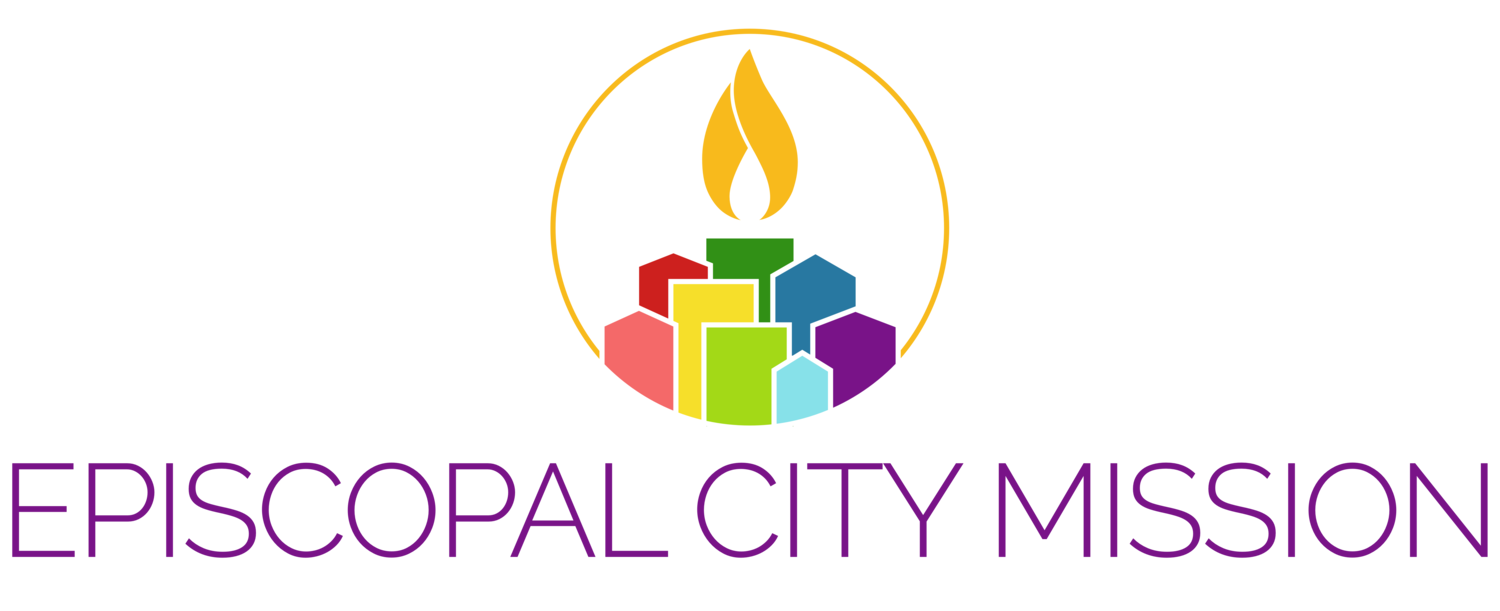
OUR HISTORY
Since our founding in 1844, Episcopal City Mission’s faith and spirituality have been core to our mission of transforming an unjust world. It all began with two white, Episcopal lay-women of Trinity Church in Boston. Motivated by their Christian faith’s imperative to serve the poor, their ministry led to the incorporation of ECM as an expression of the Episcopal diocese of MA’s response to a broken world focused on the city and specifically Boston, MA.
Overtime, these ministries expanded to included summer camps and other forms of direct service. It wasn’t until the 1960 and 70’s that ECM began a shift to support systemic change. Under the leadership of the Reverend John Burgess and the Reverend Gil Avery, ECM moved from addressing the symptoms of injustice to addressing the root causes and working to change the systems that perpetuate racial and economic injustice.
The 2020 racial uprisings alongside the Covid-19 pandemic were a wake-up call to ECM. We knew that to move in solidarity with those impacted by racial and economic justice, we had to look deep within and take responsibility for who we are and have been. We had to face our history and respond to our role in creating the harm we sought to alleviate. We needed to transform the way we relate to our community and our work. Thus, we embarked on a year-long mission alignment process. The process gathered our community, our grantees, Episcopal lay and clergy leaders and supporters, our staff and our Board to ask the question: Who is ECM and how should we live out our mission in this time?
Together, we were able to answer that question with an adapted strategy aimed at shrinking the racial wealth gap in Massachusetts. We believe this work is at the core of our mission to work for economic and racial justice as the expression of God’s transforming love. We do this by better understanding our history so we may be a catalyst for change.
The timeline below illustrates important pivot points in our story:
-
Episcopal City Mission was incorporated. Its seeds were two ministries—a shelter for homeless people in the North End and a Sunday School for homeless children run by two women members of Trinity Church that took place in a sail loft on Atlantic Avenue. These two missions caught the attention of a wealthy merchant, Mr. William Appleton, who donated $50,000 to build a chapel to house them, the first St. Stephen’s in the South End.
-
The Great Boston fire destroys St. Stephen’s.
-
The present St. Stephen’s in Boston’s South End was acquired. Under the leadership of The Rev. Frederic Allen, ECM started a youth program, the Mother’s Rest in Revere, and other religious, social, educational and recreational programs.
-
The first Morville House on Clarendon Street was opened under the leadership of Suffragan Bishop Raymond A. Heron.
-
The Reverend John Burgess elected Bishop Suffragan.
In the early 1960’s ECM also deeded the mission churches to the Diocese. By disengaging from parochial responsibilities, ECM was able to redirect its strategy. -
At the celebration of its 100th birthday, ECM had ministries for the foreign born, the sick, prisoners, seamen, mothers and children. Eleven mission centers built, including: St. Stephen’s, South End; St. Cyprian’s, Roxbury; St. Luke’s, Chelsea; three churches in South Boston, two in East Boston, one in Revere, and two immigrant non-English speaking churches —one Swedish in Dorchester, and one Italian in Boston. They also owned and operated a summer camp in Foxboro, Sailors’ Haven in Charlestown, and Mothers’ Rest at Revere Beach.
-
1956 – 1962 The Reverend John Burgess became Superintendent of ECM and Archdeacon of Boston with oversight of Episcopal urban missions.
-
1966 – 1981
The Reverend Gilbert Stiles Avery III appointed the first Executive Director of ECM. Under his leadership, Morville House in the Fenway was built and the Housing Seed Money Loan Fund was created in the early 1970’s (see below). -
The Reverend John Burgess elected Diocesan Bishop. A grant program to enable urban parishes to work with their communities was established.
Early 1970’s – The Housing Seed Money Loan Fund was established, and in its 25 years of existence the program enabled the construction of more than 4000 units of affordable housing.
-
A new Morville House was built in the Fenway, providing 146 apartments to low income elderly.
-
Bishop John Burgess retires and asks that a tribute to him be a collection of money to be given to community-based organizations that were empowering the poor. That was the beginning of the Burgess Urban Fund. He specifically requested that the money be given out directly rather than made into an endowment.
-
Under the leadership of the Reverend Joseph (Joe) Pelham, ECM began to engage in public policy work. The first policy paper was developed “Housing as a Basic Human Right.”
-
ECM began to work with the parishes on economic justice, and the Pelham Fund for Economic Justice was established.
-
ECM continues to shift focus from addressing the symptoms of social problems by teaching and organizing. that direct service is not enough. ECM works to address causes of injustice and works for changing the systems that perpetuate them. ECM does this by: housing the homeless, strengthening churches, working with community-based organizations to empower the poor and oppressed, and attempting to influence public policy to address root causes.
-
The COVID-19 pandemic’s impact on Black and Brown communities and the anti-Black violence of 2020 were wake-up calls for ECM to reckon with our history and assess the impact of our work. After a year long process of engaging with our grassroot leaders and episcopal leaders, we make a choice to shift our strategy to move people, money and our moral voice to to shrink the racial wealth gap in the Commonwealth of Massachusetts.



